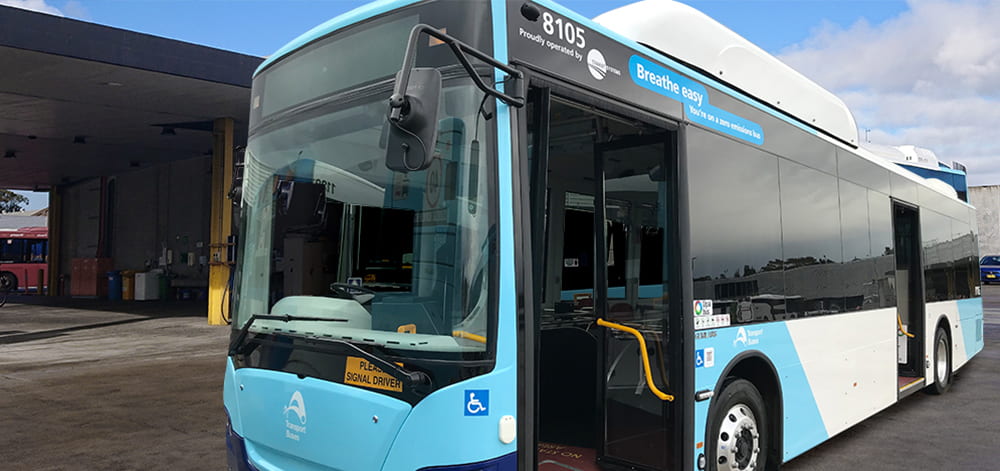When it comes to climate change, cars are part of the problem – but they’re also part of our lives. So it’s no surprise we’re looking to electric cars for a solution.
The sale of electric vehicles (EVs) has grown in a big way in
Australia, particularly in the past year or so, from individual consumers to governmental bodies looking at the best ways to reduce carbon emissions.

While car sales are dropping off generally (2019 was the lowest new car sales year since 2011), electric and hybrid vehicle sales are doing the opposite. Around 7,000 electric and hybrid cars were sold in Australia in 2019, still just a tiny fraction of the new car market given more
than a million were sold last year, but we suspect it’s the beginning of a big shift.
According to a 2019 survey of nearly 2,000 Australians, 45 per cent say they had done some research into EVs with an intention to buy (up from 17 per cent in 2017).
A taste of clean air
A (tiny) upside to the COVID-19 pandemic is that we’ve all had a taste of what life is like with less pollution in the air – during lockdown, daily global carbon dioxide emissions decreased by 17 per cent by early April, compared with the mean 2019 levels.
Could it be a lasting change? The Electric Vehicle Council of Australia says we could eliminate 6 per cent of our total greenhouse gas emissions in Australia if everyone switched to a car powered by renewable energy.
Cleaner transport options

According to a Federal Government report, EVs are ‘at the forefront of a major transformation of the world’s transport sector’. The report advocates for the widespread use of EVs to deliver significant economic, environmental
and health benefits to Australian consumers and society – and it looks like others are on board.
In NSW, the State Government released its Electric and Hybrid Vehicle Plan in January 2019 to fast-track the growth of their electric vehicle market. It’s a similar story in Victoria, where the plan is to transition to zero emissions vehicles as they work towards their 2050 emissions target (which is also zero).
Some countries have announced their intention to ban the sale of petrol and diesel vehicles altogether, while some global car makers are making plans to go electric with their own models.
Charging stations on the rise

In yet another sign of things to come, charging stations are going to be increasingly easy to come by.
The Federal Government recently announced $6 million to ensure
a charging station at least every 200km between Australia’s major cities (the average EV covers about 480km on a full charge). These high-speed charging stations can already be found at a handful of shopping centres, hotels,
airports, tourist attractions and businesses. Music to our ears.
Private innovators are on board too. One Brisbane-based company has just introduced an
all-new ‘plug and charge’ technology. It sounds pretty cool – rather than having to set up an account or enter your card details each time you charge at a new station, it recognises your car’s cryptographic
certificate (what our regular human brain might call ‘car DNA’) and uses that for payment. They’ve explained that “it’s like embedding your credit card into your vehicle”. They’re also seeking
to expand their footprint into California, and rightly so – that’s where you’ll find around half of the nearly 1.5 million electric cars in the US.
As we get on the (electrically powered) bandwagon here in Australia, hopefully some of that home-grown tech will boom here too.
The money side
It’s a common misconception that electric vehicle charging uses a lot of electricity and that EVs are expensive to run, but we’ve learned that’s not the case. The Electric Vehicle Council of Australia
estimates they can save the average Australian driver over $1,500 per year on
fuel costs. As for maintenance and servicing, fewer moving parts means estimated savings of up to $400 a year.
Want more good news? Electric vehicles are likely to become even cheaper, with lots of the latest models priced under $50,000.
The Electric Vehicle Council reckons most EV batteries will even last the lifetime of the car.
The best bit of all this is that there’s a lot of weight behind the EV industry – from governments to industry to the people squirreling away behind the blog you’re reading right now. That can only mean good things for
the kinds of EVs we see on the market in the future (fingers crossed for more advanced cup holders while they’re at it).